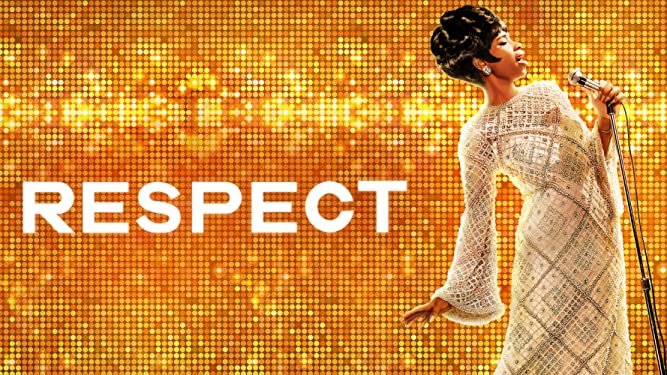Applying for jobs is stressful and has a huge impact on the mental wellbeing of candidates.
“Our industry faced huge levels of trauma and uncertainty throughout the pandemic, and is still facing this moving into 2022,” comments Helen Moon, Founder of EventWell. “We have a huge pool of professionals who are really feeling the effects in terms of confidence and self-esteem. Fragility is at an all-time high, mental wellbeing at an all-time low.”
Employers and hiring managers need to appreciate this, and to understand that before a candidate even applies for the role, they have been through a whole range of emotions. They have researched your company and they’ve looked at your role. They have applied because (rightly or wrongly) they think they can do the job, which means they are putting themselves out there and possibly setting themselves up for rejection.
Because that’s the thing with recruitment; there’s no middle ground. It’s a ‘yes’ or a ‘no’ answer, and no matter how you sugar-coat negative feedback no-one wants to hear the word no. Whenever you say no to a candidate, you might feel you’re saying “you’re not a right fit” (but what they will hear is) “you’re not good enough”.
“The recruitment process is the first step into a relationship between the individual and the business” says Laura Capell-Abra, Founder of Stress Matters. “The question is how do you want to start that relationship – in a disrespectful, unbalanced way or a collaborative, supportive way? As in any relationship, a power imbalance can develop that impacts our mental health. The strength and the positivity of the relationship will ultimately dictate how successful the relationship is.”
Manage expectations for both sides…
If your job advert’s very ambiguous, be prepared to receive lots of inappropriate applications. Help yourself and help candidates by managing expectations. If something is an absolute must, say so in the advert. I understand that if you are hiring lots of people, you may not have the headspace to write a bespoke job advert for each role, but at the very least you should include a paragraph stating the ‘must haves’ at the top in a way that makes the reader feel like you’re talking to them. Including the salary band also will also help to hone down and reduce unsuitable applications. As a hirer, you want to ensure that you make your life as easy as possible too; by being specific you won’t have to wade through hundreds of CVs.
…But be realistic too
Before you post your job advert, ask yourself “why am I asking for this?” Are you asking for something because you always have, or are you asking for it because the role actually needs it? You may think you need someone with five years’ experience, but why? You may find someone has achieved exactly what you need in only two years. And more importantly, is what you are asking for realistic. Because if it’s not, you can’t blame a lack of candidates on the so called ‘talent shortage’.
People are human – treat them as such
Remember that applicants are more than a piece of paper. They are more than a faceless applicant – there’s a real human being behind that CV. They have taken time to apply for your role so please treat them with the time and respect they deserve.
Make time to reply to everyone who applied
My biggest bugbear is hearing people say “I don’t reply to all applicants” or, “if you haven’t received a response within 72 hours it’s a no”. That’s a sure-fire way to make people feel worthless. Trust me, if you took the time to write a detailed descriptive advert in the first place, you wouldn’t have a lot of unsuitable candidates, so this would be a moot point anyway.
Don’t ghost candidates (ever, ever, ever)
As a candidate, you know if you apply for a job and you don’t hear anything, it’s just based on your CV and as tough as that is to take, your expectation levels are unfortunately low in the first place. But to go in for an interview, meet the interview panel and then not hear anything is absolutely devastating. You have been judged and it becomes very personal and for the life of me I don’t understand why recruiters / hiring teams would do this to someone.
Bite the bullet
Everyone loves making the “congratulations, you’ve got the job” call, and it can be tempting to put off the “I’m sorry” calls because they can be uncomfortable. But you must always flow information through as soon as you get it, you’d expect the same in return and other people are depending on you. Yes, that also means calling the candidate on a Friday to give them bad news if that’s when you’ve said you would, you’re not “ruining their weekend” you’re giving them closure and the freedom to move on.
Remember: What goes around comes around
If you have 40 people apply for one role, there’s 39 people who will be unsuccessful; how you treat them and manage their experience will say a lot about you and your business. People talk and share bad experiences, it’s a small industry and how you treat the unsuccessful candidates could seriously impact on your company’s reputation.
“Ensuring the recruitment process is one that is empathetic and has honesty, transparency and authenticity at its heart will help to ensure that as an industry we are doing all we can to reduce any unnecessary additional pressure and trauma, and give a potential future employee the best possible start in a new position, or set them off on the best path to seek another,” says Moon.
“We have more impact on the way people think and feel than we often recognise,” concludes Capell-Abra. “It reminds me of a quote by Carl Sagan, ‘Who are we, if not measured by our impact on others? That’s who we are! We’re not who we say we are, we’re not who we want to be – we are the sum of the influence and impact that we have, in our lives, on others.’ Be the positive impact, even if it is a No for now.”
Or in layman’s terms, please don’t be a dick, ever.






